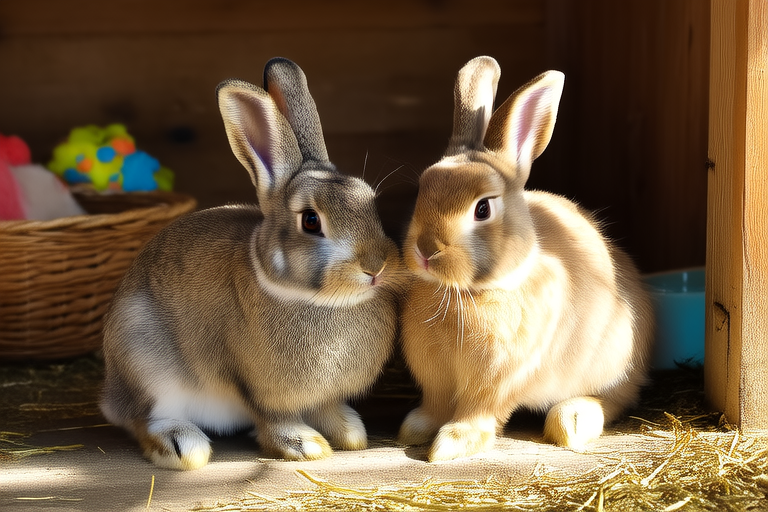Lop Rabbits 101: Care, Feeding, and Fun Facts
Welcome to the World of Lop Rabbits
Welcome to the delightful world of lop rabbits! These charming creatures are known for their floppy ears and friendly demeanor. Whether you’re a seasoned rabbit owner or considering adopting your first pet, this guide will provide you with all the essential information on caring for, feeding, and enjoying these lovable animals.
Housing Your Lop Rabbit
Creating a comfortable and safe environment is crucial for the well-being of your lop rabbit. Here’s what you need to know:
Choosing the Right Cage
Your lop rabbit’s cage should be spacious enough for them to move around freely. A good rule of thumb is that the cage should be at least four times the size of your rabbit when fully grown. Opt for a cage with solid flooring to prevent sore hocks, a common issue among rabbits.
Bedding and Accessories
Line the bottom of the cage with absorbent bedding like recycled paper, wood shavings, or hay. Provide your lop rabbit with a variety of toys, tunnels, and platforms to keep them mentally stimulated and physically active.
Outdoor Enclosures
If you have the space, consider allowing your lop rabbit some outdoor time. Ensure the enclosure is secure against predators and has shade for hot days. Always supervise your rabbit when they’re outside.
Grooming Your Lop Rabbit
Regular grooming helps maintain your lop rabbit’s coat and prevents matting and skin issues.
Bathing
Rabbits rarely need baths; too much bathing can strip their coat of natural oils. Instead, spot clean as needed and focus on keeping their living area clean.
Brushing
Brush your lop rabbit weekly to remove loose fur and prevent hairballs. Use a slicker brush for long-haired breeds and a bristle brush for short-haired ones.
Nail Trimming
Trimming nails regularly is important to prevent overgrowth. If you’re unsure how to do it safely, consult your veterinarian.
Health Needs of Lop Rabbits
Like any pet, lop rabbits require regular veterinary check-ups and attention to their health.
Vaccinations
Ensure your lop rabbit is up-to-date on vaccinations recommended by your vet, especially if they spend time outdoors.
Dental Care
Rabbits’ teeth grow continuously, so providing plenty of hay and chew toys is essential to help wear down their teeth naturally.
Common Health Issues
Be aware of common health problems such as dental disease, digestive issues, and respiratory infections. Early detection and treatment are key to maintaining your rabbit’s health.
Feeding Your Lop Rabbit
Proper nutrition is vital for the health and longevity of your lop rabbit.
Diet Composition
The core of your lop rabbit’s diet should consist of high-quality hay (timothy, orchard, or meadow), which provides necessary fiber. Supplement their diet with fresh vegetables and a small amount of pellets formulated specifically for rabbits.
Treats
Occasional treats are fine, but avoid sugary snacks. Offer small pieces of fruits or vegetables like carrots, apples, and leafy greens.
Water
Always provide fresh, clean water. A sipper bottle is ideal as it keeps water clean and prevents spills.
Fun Facts About Lop Rabbits
Lop rabbits have captured hearts worldwide with their unique appearance and gentle nature. Here are some fascinating facts about these beloved pets:
Origin and History
Lop rabbits originated in Europe, with the earliest records dating back to the 19th century. They were selectively bred for their distinctive drooping ears.
Varieties
There are several varieties of lop rabbits, each with its own charm. Popular breeds include the English Lop, French Lop, and Miniature Lop.
Social Creatures
Lop rabbits are highly social animals. They thrive on interaction and enjoy the company of both humans and other rabbits.
Longevity
With proper care, lop rabbits can live between 8 to 12 years, making them long-term companions.
